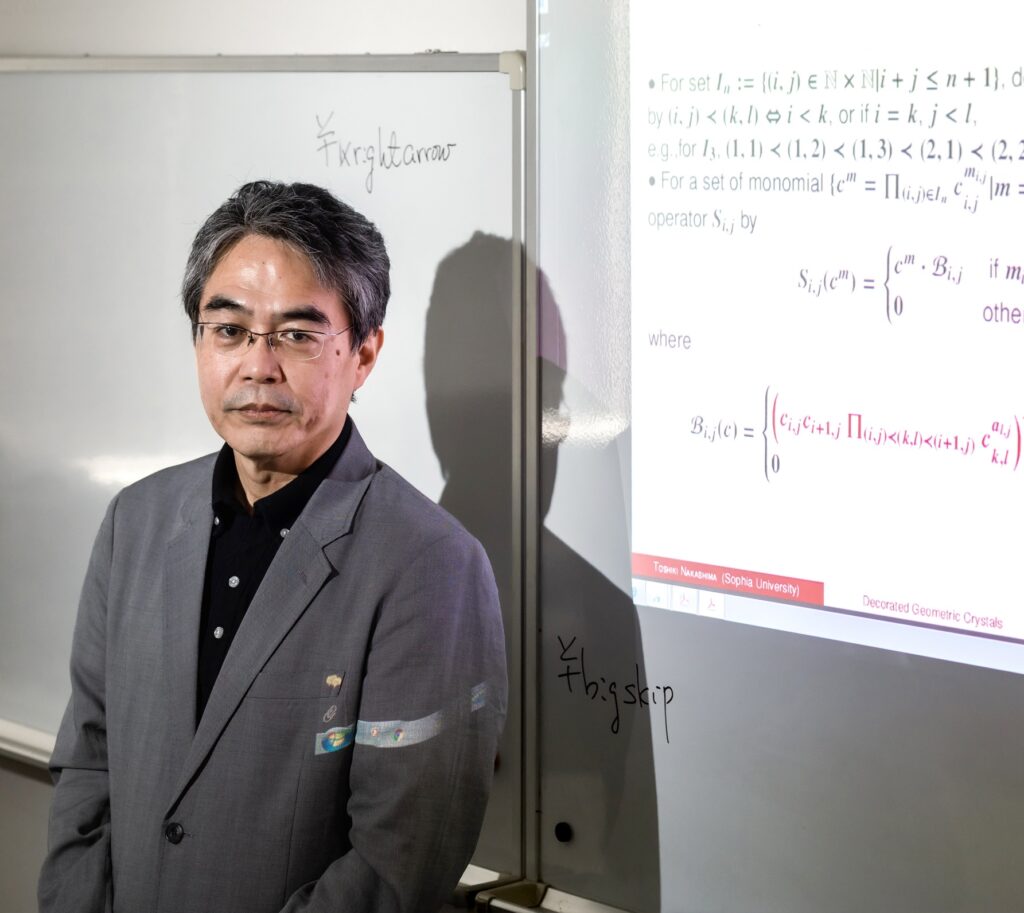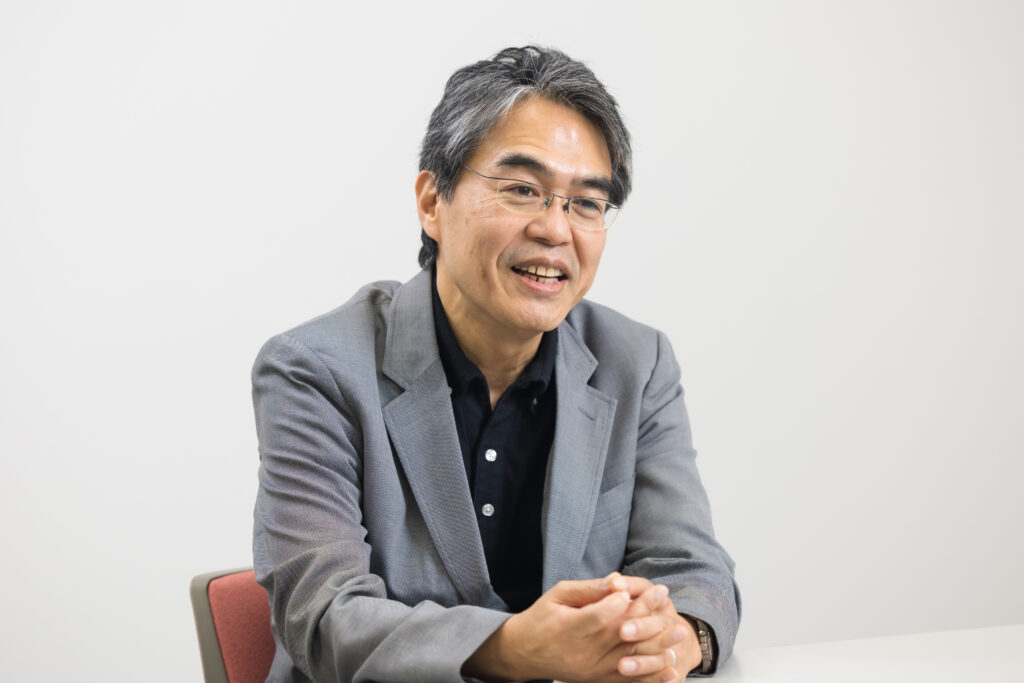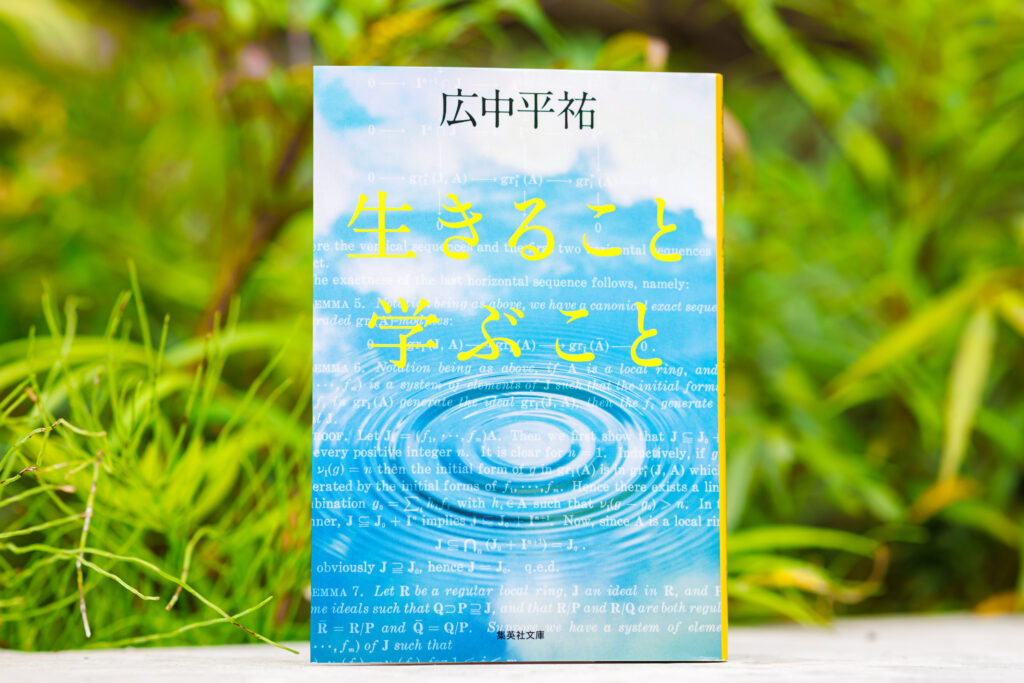
Professor Toshiki Nakashima from the Faculty of Science and Technology undertakes research on a theory known as crystal base. He talks about the joy of delving into crystal base and other areas of mathematics as well as his devotion to research which pursues that single success after a hundred failures.
My supervisor in graduate school was the professor who discovered and named the theory called crystal base. That was my encounter with this theory. Back then, it was a novel theme that gave new results with further research. This led me to embark on research in this area and more than 30 years have since gone by.
Crystal base is a theory that is extremely difficult to explain in a few words. My specialty is a field within algebra called representation theory of quantum groups. Crystal bases have the characteristic of simplifying various calculations related to quantum groups without losing the information contained in them.
From the breadth of its application scope, this is a definition that is extremely useful in the world of mathematics. At the same time, crystal base—which provided the springboard for the birth of the fields known as cluster algebra and categorification—is a theory that is rich in potential for further development.
Links with other fields lead to unexpected results

Traditionally, Japan is strong in quantum group research. We are also in an advanced position globally when it comes to crystal base research. Today, we are past the stage of further developments in research on crystal base alone. In other words, we are in a stable stage now, but there is still the hidden potential for obtaining unexpected results through links with research in other fields.
For example, a while ago, I received an email from a researcher in probability theory. I am not sure of the details as I am a total stranger to probability theory, but this researcher thought that crystal base theory has the potential for application in that one’s own research after reading a paper I wrote.
In mathematics research, it is not rare to have such links across fields. In fact, links with other fields often produce more results compared to research being developed independently.
My motivation are interest and a competitive spirit, not usefulness
I think all mathematicians, including myself, have been asked about the usefulness of their research. If you ask me whether my current research is beneficial to society, my answer is that, in principle, it may be of no use at all, and even if it is useful, I am unable to explain how.
Even the pioneers who discovered theories that are useful to society today probably did not conduct research expecting today’s spread of computers and artificial intelligence. Such is the area of study known as mathematics.
Confronting complex formulas to see if they lead to the answer or struggling when even this is unclear, and arriving at a decision after a month or sometimes half a year or a year—mathematical research is a repetition of this process.
Even so, I continue with research because mathematics is interesting. Arriving at success after a hundred failures is exceptionally touching.
Another reason is because I do not want to leave my field of specialization to other researchers. You can say this is my sense of territory, or even a competitive spirit. When I check websites where my papers are scheduled to be published and find other papers similar to my field of research, a feeling of “Wait, shouldn’t I be doing this?” ignites within me.
As a mathematician, my goal is to discover new concepts that have yet to be found by others and publish them as papers. This desire has not change from the time when I first became a researcher until today.
The book I recommend
“Ikiru Koto Manabu Koto”(About Living, About Learning)
by Heisuke Hironaka, Shueisha

I took up this book because, when I was a high school student, it was rare to find books written by mathematicians. Episodes from Professor Hironaka’s childhood, the joy of learning, and other topics are covered in this book. Now, as a mathematician myself, I get new insights when I reread the book.
-
Toshiki Nakashima
- Professor
Department of Information and Communication Sciences
Faculty of Science and Technology
- Professor
-
Graduated from the Department of Mathematics, Faculty of Science, The University of Tokyo, and received his Ph.D in Science from Kyoto University. Took on various positions—such as research assistant at Osaka University’s School of Engineering Science and assistant professor at the Department of Mathematics, Faculty of Science and Technology, Sophia University—before assuming his current position in 2005.
- Department of Information and Communication Sciences
Interviewed: June 2022